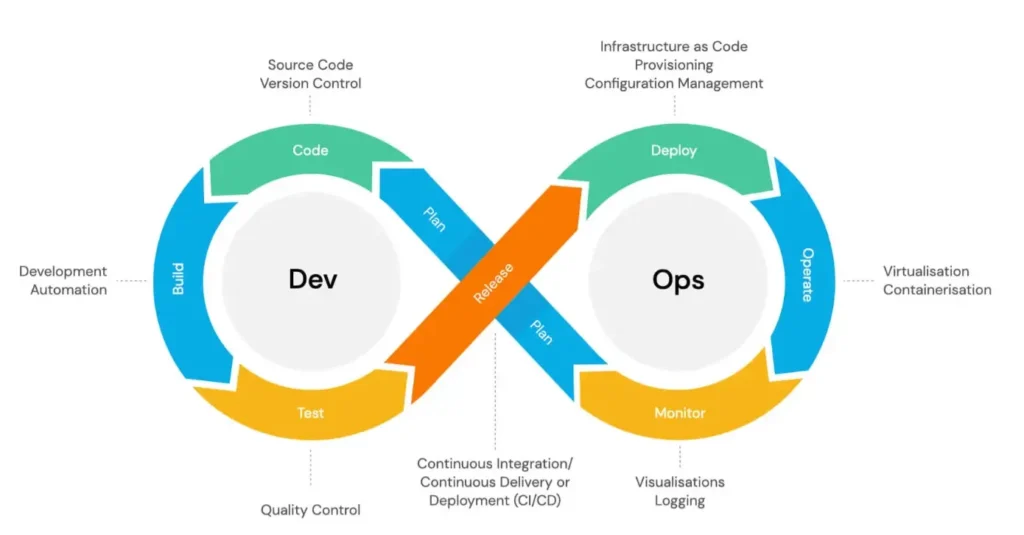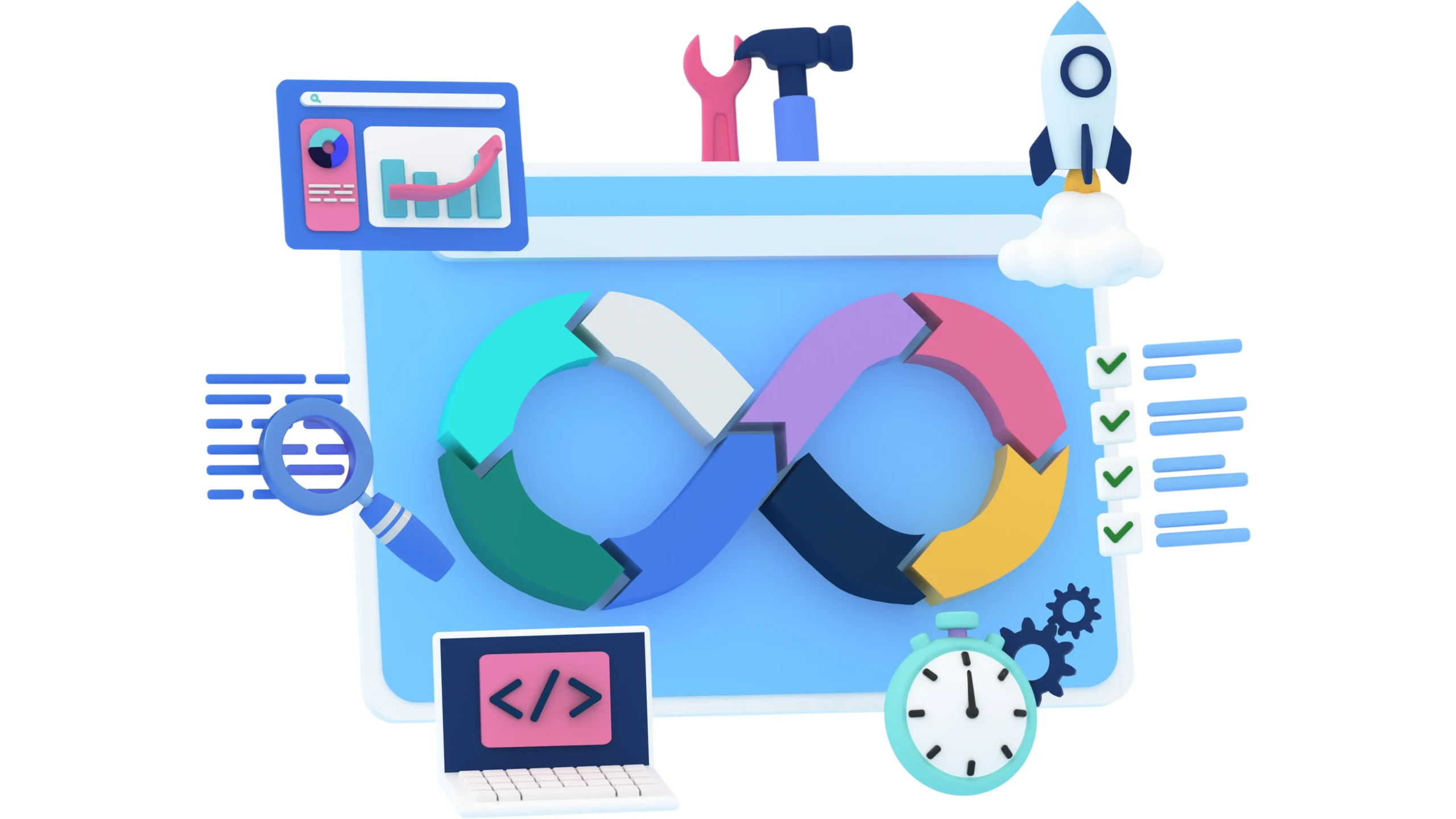Are you considering a career as a DevOps Engineer? If so, you may be wondering how long does it takes to become a DevOps Engineer and master the skills and knowledge required for this in-demand role.
In this article, we will explore the fast track to becoming a DevOps Engineer and unravel the time it really takes to reach proficiency.
DevOps is a rapidly evolving field that combines software development and operations, emphasizing collaboration, automation, and continuous improvement. As organizations increasingly adopt DevOps practices, the demand for skilled professionals in this area is skyrocketing.
While the duration of becoming a DevOps Engineer can vary depending on factors such as prior experience and dedication, there are certain steps you can take to accelerate your journey.
We will dive into the essential skills, learning resources, and practical experience you need to acquire to become a proficient DevOps Engineer.
Whether you’re starting from scratch or transitioning from a related role, this article will provide insights and guidance on the path to becoming a DevOps Engineer. So, let’s get started on your way to mastering DevOps and opening doors to exciting career opportunities.
What is DevOps Engineering?
DevOps Engineering is a field that combines software development and operations, emphasizing collaboration, automation, and continuous improvement.
It is a set of practices and principles aimed at breaking down silos between development and operations teams, enabling organizations to deliver software more effectively and efficiently.
DevOps Engineers are responsible for implementing and managing the tools, processes, and infrastructure that enable continuous integration, delivery, and deployment of software.
They play a crucial role in bridging the gap between development and operations, ensuring smooth and seamless software delivery and deployment.
To learn more, consider reading the article “A Detail Guide: What Is DevOps Engineering?“

Demand for DevOps Engineers
As organizations increasingly adopt DevOps practices, the demand for skilled professionals in this area is skyrocketing.
According to a report by LinkedIn, DevOps Engineer is one of the most sought-after roles in the tech industry. Companies of all sizes and industries are recognizing the need for DevOps Engineers to streamline their software development and deployment processes.
The advantages that DevOps offers organizations are what fuel the demand for DevOps Engineers. By breaking down silos and fostering collaboration between development and operations teams, DevOps enables faster software delivery, improved reliability, and increased scalability.
As a result, companies can deliver high-quality software products to market more quickly, gaining a competitive edge.
Role of a DevOps Engineer
A DevOps Engineer is responsible for various tasks throughout the software development lifecycle. They work closely with development teams to automate and streamline the build, test, and deployment processes.
They also collaborate with operations teams to ensure the availability, performance, and security of the software systems.
One of the key responsibilities of a DevOps Engineer is to implement and maintain the infrastructure and tools that support continuous integration, delivery, and deployment. This includes configuring and managing build servers, version control systems, deployment pipelines, and monitoring tools.
DevOps Engineers also play a crucial role in ensuring the security of software systems by implementing secure coding practices and vulnerability management processes.

Skills required to become a DevOps Engineer
Becoming a proficient DevOps Engineer requires a combination of technical and soft skills. Here are some of the essential skills you need to acquire:
Technical skills
Programming and scripting
DevOps Engineers should have a strong understanding of programming languages such as Python, Java, or Ruby, as well as scripting languages like Bash or PowerShell. They should be able to write scripts to automate tasks and build tools.
Infrastructure as Code (IaC)
Knowledge of IaC tools like Terraform or Ansible is crucial for DevOps Engineers. They should be able to define and manage infrastructure using code, enabling reproducibility and scalability.
Containerization and orchestration
Familiarity with containerization tools like Docker and container orchestration platforms like Kubernetes is essential. DevOps Engineers should understand how to build, deploy, and scale applications using containers.
Cloud platforms
Proficiency in at least one major cloud platform like AWS, Azure, or Google Cloud is highly desirable. DevOps Engineers should be able to provision and manage resources in the cloud, as well as leverage cloud services for scalability and resilience.
Soft skills
Collaboration and communication
DevOps Engineers need to work closely with cross-functional teams, including developers, operations, and other stakeholders. Strong collaboration and communication skills are essential for effective teamwork.
Problem-solving and troubleshooting
DevOps Engineers should have a strong problem-solving mindset and the ability to troubleshoot complex issues quickly. They should be able to analyze and resolve technical problems in a fast-paced environment.
Continuous learning
Given the rapidly evolving nature of the DevOps field, a willingness to continuously learn and adapt is crucial. DevOps Engineers should stay updated with the latest tools, technologies, and best practices in the industry.
How long does it take to become a DevOps Engineer?
The duration of becoming a DevOps Engineer can vary depending on factors such as prior experience and dedication. While some individuals may acquire the necessary skills and knowledge within a year or two, others may take longer.
It’s important to note that becoming a proficient DevOps Engineer is an ongoing journey. The DevOps landscape is constantly evolving, with new tools, technologies, and best practices emerging regularly. Therefore, it’s essential to embrace continuous learning and skill development to stay ahead in the field.
Steps to fast-track your journey to becoming a DevOps Engineer
While the duration of becoming a DevOps Engineer may vary, there are certain steps you can take to accelerate your journey. Here are some tips to fast-track your path to becoming a DevOps Engineer:
Education and certifications for DevOps Engineers
Obtaining a formal education in computer science or a related field can provide a solid foundation for a career in DevOps Engineering. Many universities and online platforms offer courses and programs specifically designed for DevOps professionals.
In addition to formal education, earning relevant certifications can demonstrate your expertise and commitment to the field. Certifications like
- AWS Certified DevOps Engineer – Professional
- Microsoft Certified: DevOps Engineer Expert, or
- Professional Cloud DevOps Engineer
can enhance your resume and attract potential employers.
Practical experience and internships
Gaining practical experience is crucial for becoming a proficient DevOps Engineer. Look for opportunities to work on real-world projects, either through internships, open-source contributions, or personal projects.
This will allow you to apply your skills and gain hands-on experience with DevOps tools and practices. Internships can be a great way to kickstart your career in DevOps Engineering.
Many companies offer internships specifically targeted towards DevOps roles, providing valuable exposure and mentorship opportunities.
Networking and professional development opportunities
Networking with professionals in the DevOps community can provide valuable insights and opportunities. Attend industry conferences, meetups, and webinars to connect with like-minded individuals and stay updated with the latest trends and developments in the field.
Joining online communities and forums dedicated to DevOps can also be beneficial. Engage in discussions, ask questions, and share your knowledge to build your reputation and expand your professional network.
Additionally, consider participating in hackathons, coding competitions, or DevOps-focused events. These events provide valuable learning experiences and can help you showcase your skills to potential employers.
Conclusion
Becoming a DevOps Engineer is an exciting and rewarding career path. While the time it takes to become proficient can vary, taking the fast-track approach outlined in this article can help you accelerate your journey.
By acquiring the necessary technical and soft skills, gaining practical experience, and continuously learning and adapting, you can position yourself as a valuable asset in the ever-growing DevOps field.
Embrace the opportunities available, stay committed to personal growth, and watch as the doors to exciting career opportunities open wide for you.
Remember, becoming a DevOps Engineer is not just about mastering the skills and knowledge, but also about embracing the DevOps culture of collaboration, automation, and continuous improvement. So, start your journey today and embark on an exciting career in DevOps Engineering!

